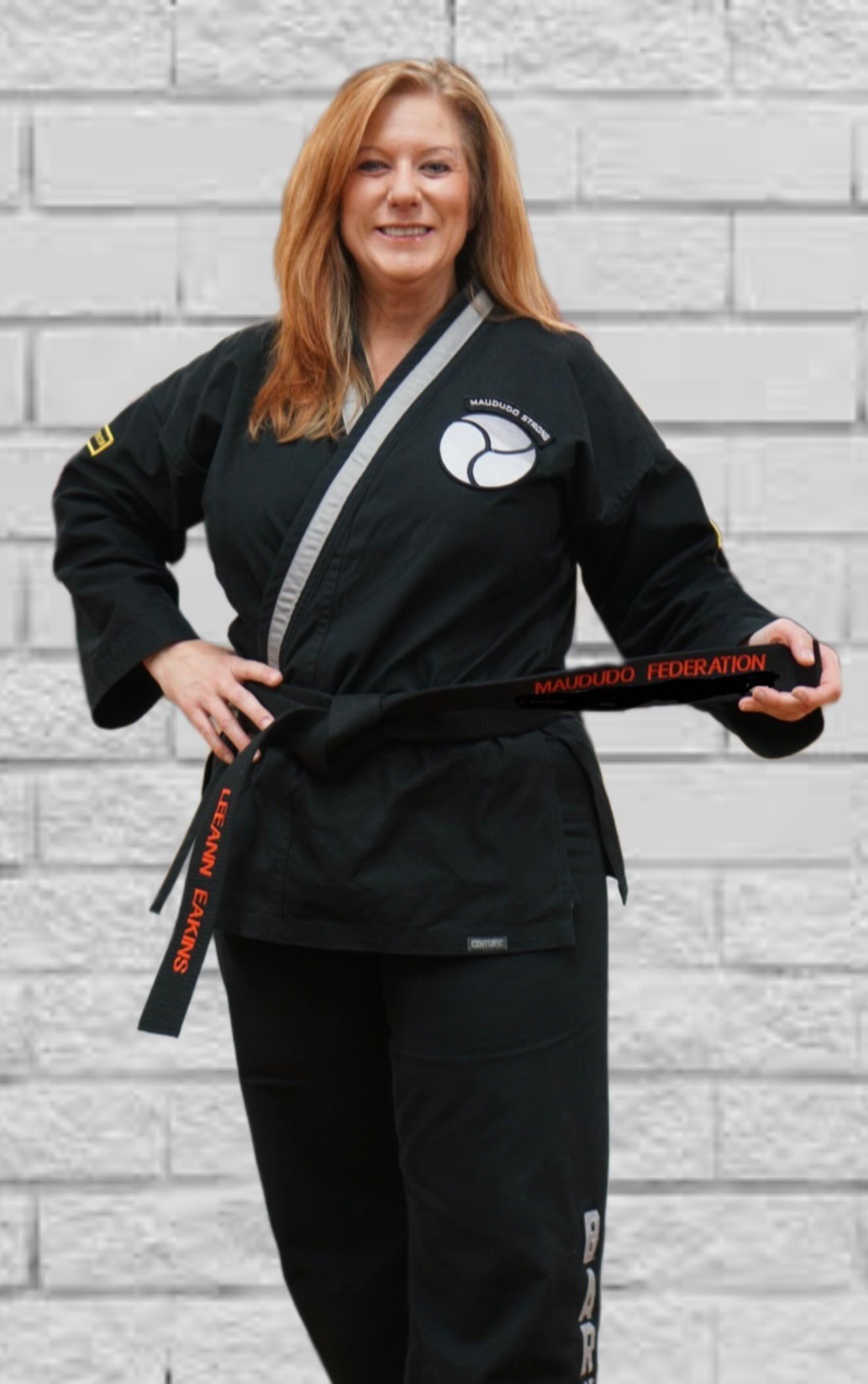We’re excited to introduce you to the always interesting and insightful Lee Ann Eakins. We hope you’ll enjoy our conversation with Lee Ann below.
Lee Ann, thanks for joining us, excited to have you contributing your stories and insights. We’re complete cheeseballs and so we love asking folks to share the most heartwarming moment from their career – do you have a touching moment you can share with us?
I’m happy to say I have heard so many stories about how Trauma Informed Martial Arts (TIMA) has played a positive role in people’s lives. One that has really touched me is a story of a woman who came to class not being able to walk outside alone. I was not aware of this at the time she started the class. She had even signed up for class with a friend and they always came together. Then one day she ended up being the only student there with me and she shared how TIMA had helped her step outside of her comfort zone and she couldn’t believe she had come to class alone. She said that TIMA helped her feel comfortable and confident enough that she could now walk outside alone again. I was blown away!
A few weeks after her class session was over, she sent me a text while she was on vacation about how she had been able to complete a 4 mile walk outside- ALONE. She was thrilled and told me that any time she felt any anxiety during the walk, she just started going over the self-defense moves from TIMA and this calmed her.
To know that we’ve been able to help someone find her own power, control and independence in her life, is truly heartwarming.

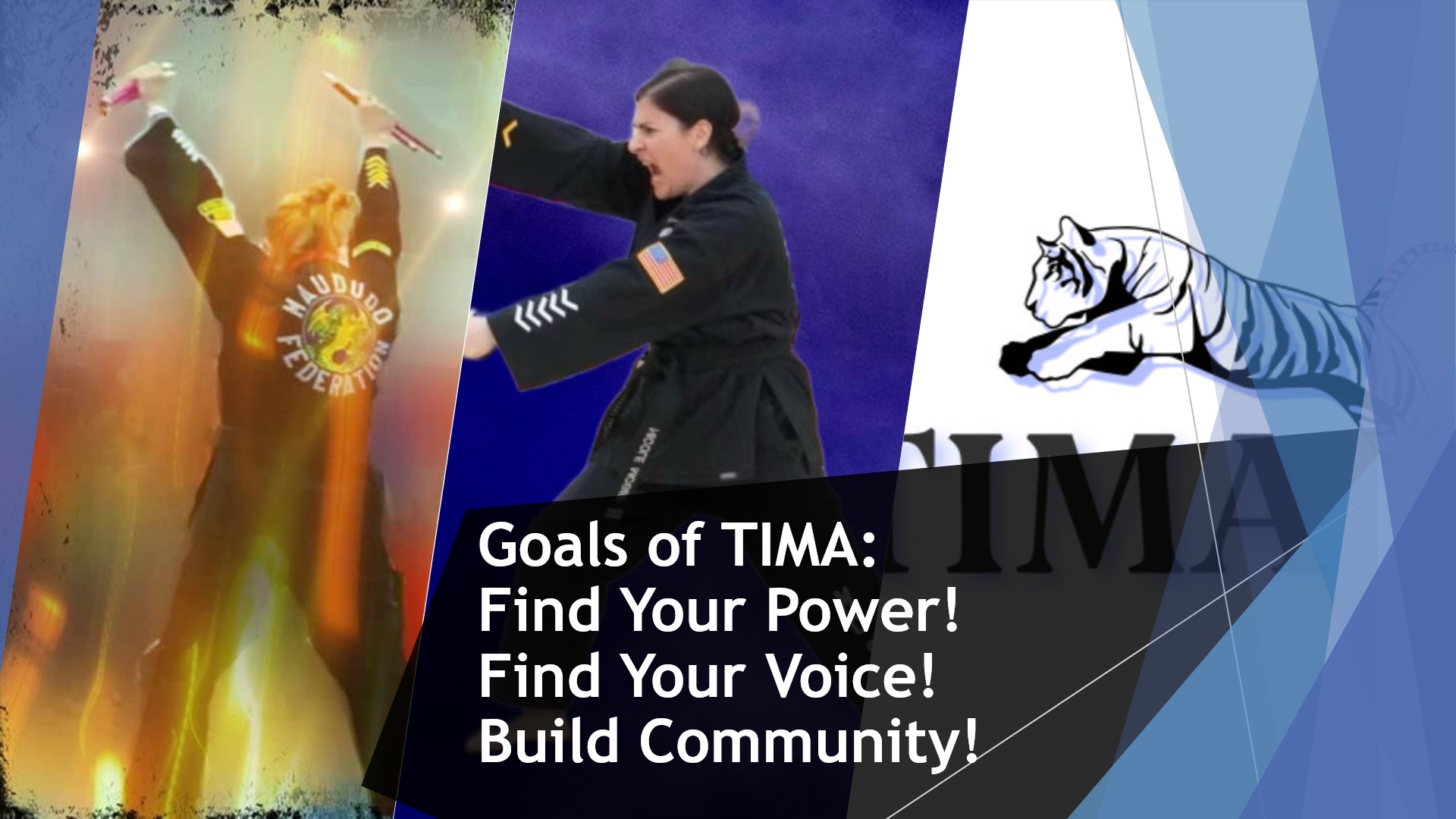
As always, we appreciate you sharing your insights and we’ve got a few more questions for you, but before we get to all of that can you take a minute to introduce yourself and give our readers some of your back background and context?
I love the quote by Rumi- “As you start to walk on the way, the way appears”. It is a great representation of how my life has unfolded into starting the Trauma Informed Martial Arts program. I first started in martial arts as a teenager. Never in a million years did I think I would be an instructor one day much less develop my own program. At that time, I also didn’t have intentions on becoming a therapist. However, life unfolds and for me that meant discovering a field of study I love which I turned into my career as a psychotherapist. By this time I was on a hiatus from martial arts.
As a psychotherapist I specialized in dual diagnosis and right out of grad school I worked in forensic behavioral treatment. This included having to provide trauma treatment. It was never my intention to specialize in trauma treatment, but the path appeared.
At that time I was married and we had two daughters. We decided to enroll them in a karate school which led me back to my own martial arts path. My psychotherapy and martial arts paths ran parallel for many years. Eventually I earned a blackbelt and then one day my instructor, looked at me and told me I could be a Grand Champion. My response was- Who me? This encouraged me to set my sights towards competition and becoming an instructor in the Maududo Federation.
I went onto be a 4-time Grand Champion, the reigning Ultimate Grand Champion for 2022 and to compete in Regional and National World Karate and Kick Boxing Commission tournaments. Currently, I’m working on Grand Championship number 5. This all truly helped build my confidence as a martial artist, and it also took me out of my comfort zone and into growth as a martial artist.
Eventually, my psychotherapy and martial arts paths began to cross, and as I reflected on my own journey, I realized how I tamed challenges by grounding in martial arts. I then began thinking about how to merge my two passions into helping others- not just in martial arts, but to recover and manage trauma, grief, anxiety, depression, etc… I proposed my idea to Mike Franzen, Founder of Maududo and Martial Arts America, and with his encouragement, along with that of Julia Woods, a Maududo School Owner, I began designing the program. And then, the way appeared but this time in the form of the Trauma Informed Martial Arts (TIMA) program.
TIMA is an 8-week self-defense class that meets for one hour weekly. I have blended lessons from martial arts with recovery information in a trauma informed manner to help our students. I should note here that this is not a trauma discussion type of group. Students are never expected to talk about their personal information. It is an active martial arts class provided in a way that encourages safety and reconnection to the body; things that are important when one has experienced trauma.
For example, every TIMA class has a theme. One theme is Redirection. Redirection is utilized in martial arts to block or avoid attacks. In recovery from trauma, we often need to redirect our thoughts, our goals, our relationships, etc… Some redirections are small and others are big. It depends on the obstacle. Students are encouraged to take these lessons forward into their lives for the week.
While TIMA does not substitute for treatment, it has been designed to compliment treatment and to help individuals achieve the defined overall goals of TIMA-
Empowering others to:
Find Your Personal Power
Find Your Voice and
Build Community!
TIMA just celebrated its 1-year anniversary and we have found it to be so much more powerful than originally thought. I have seen people expel toxic emotions and gain power in class while punching targets, work through anger, grief and other mental health issues and be able to establish a sense of calm about themselves. It really is very grounding for people, and that helps rebuild a sense of comfort and control within oneself.
To me it is amazing to see the neuroapplications at work in TIMA. When we experience trauma, our brain can change in several ways. TIMA utilizes specific strategies to help build new, healthy neuropathways in the brain. We access both the sympathetic nervous system (fight/flight) and parasympathetic nervous system (rest) of the brain and reframe and calm the brain as needed through our class drills and atmosphere all while building power and voice with the student.
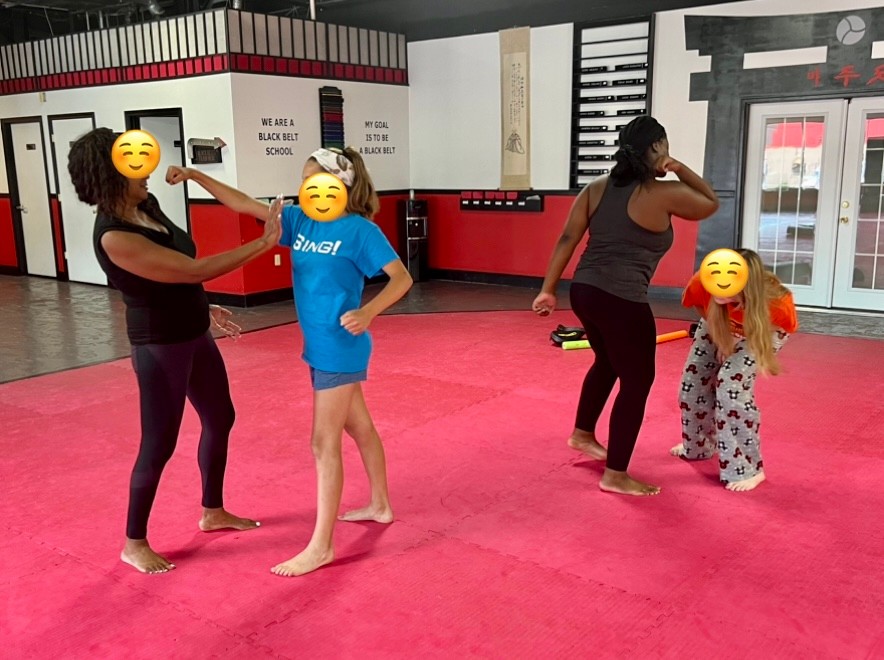
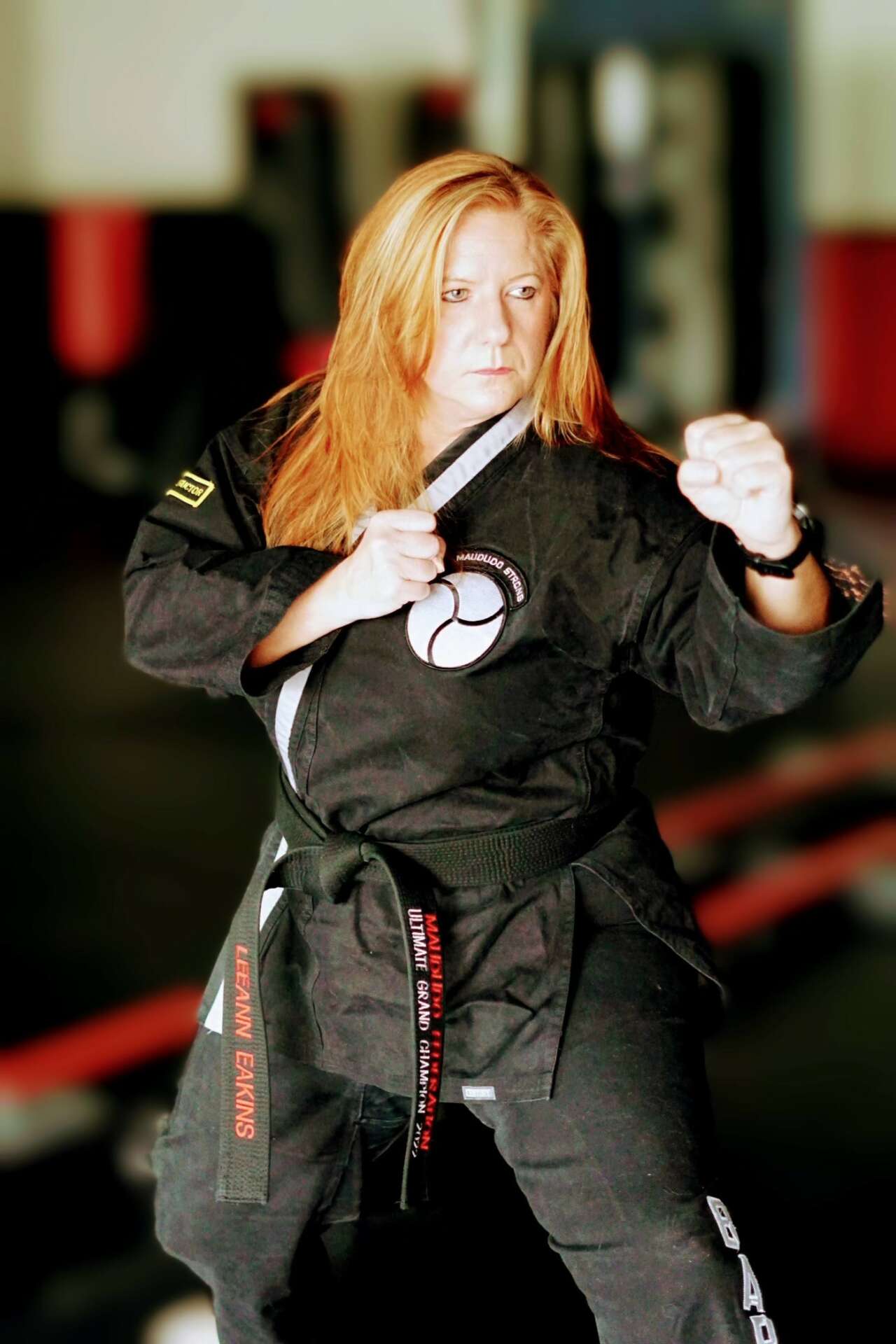
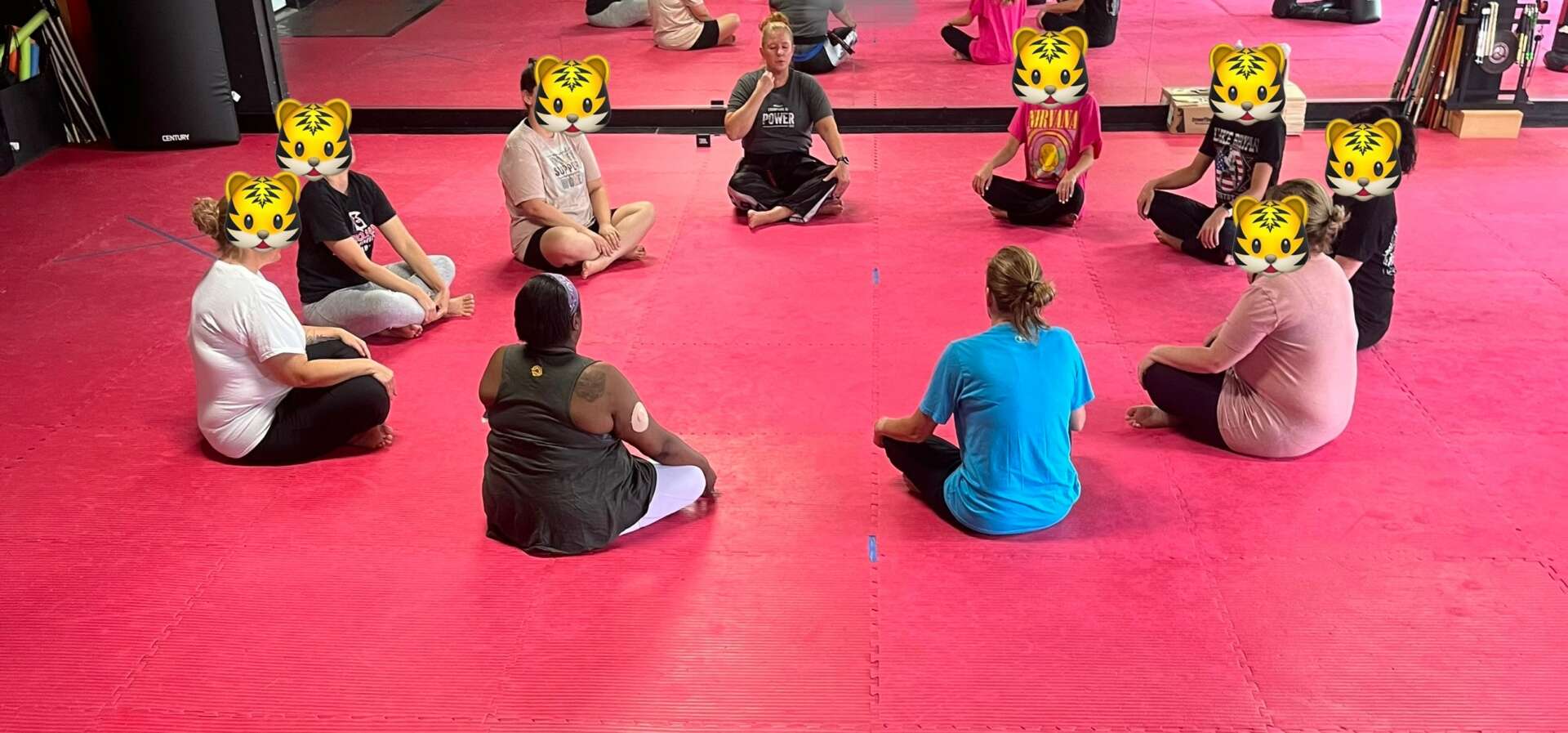
Training and knowledge matter of course, but beyond that what do you think matters most in terms of succeeding in your field?
It is without a doubt treating everyone as a person. What do I mean by that? When a person walks into my psychotherapy office, my goal is to evaluate, diagnose and devise a treatment plan with them. However, I’m not just treating the illness, but helping a person that wants to get better. We can’t help people get better or be better at “people-ing” if we just treat an illness or issue. This is a person first, and then, a person with a problem for which they need help. When people walk into the TIMA program, they are also looking for help. I can’t just focus on the martial art that I am teaching, but I have to focus on the person learning the martial art. This includes the way in which they learn, how they respond to circumstances and then I adjust accordingly.
Regardless of which office they walk into, people have often defined themselves by whatever problem they are experiencing whether it’s having bipolar disorder, experiencing trauma, etc… I make it my personal goal to see each person and to help them see themselves for who they are and what their potential is and not to define themselves by what illness they have or what has happened to them. I hope to help them let their soul shine.
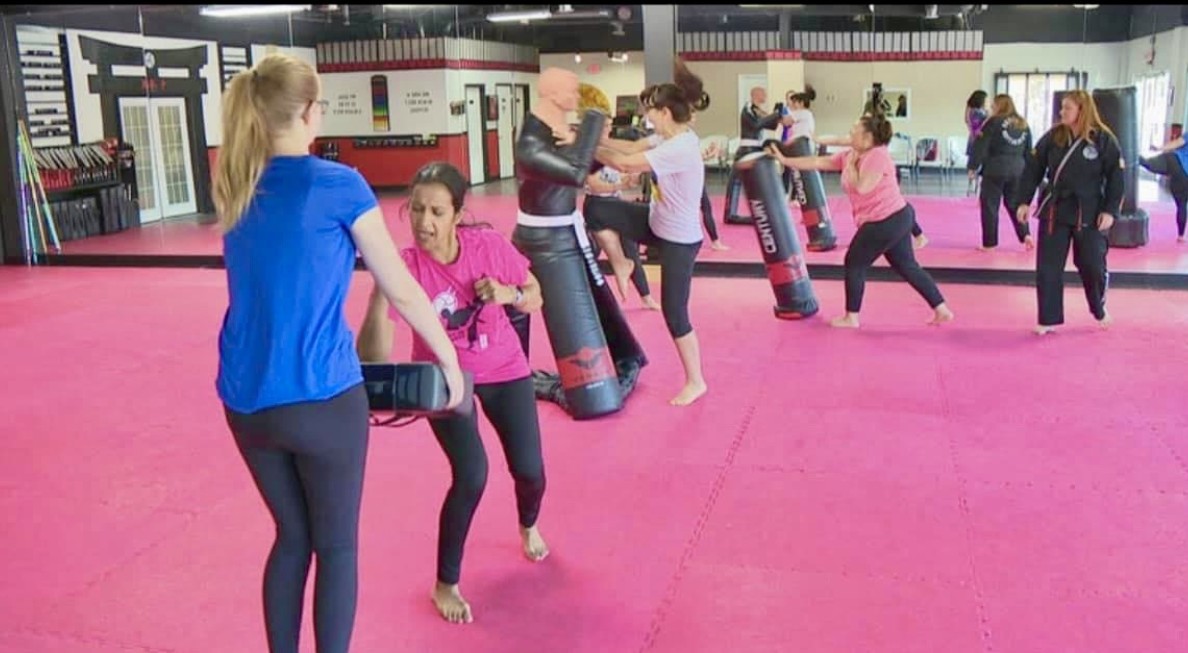
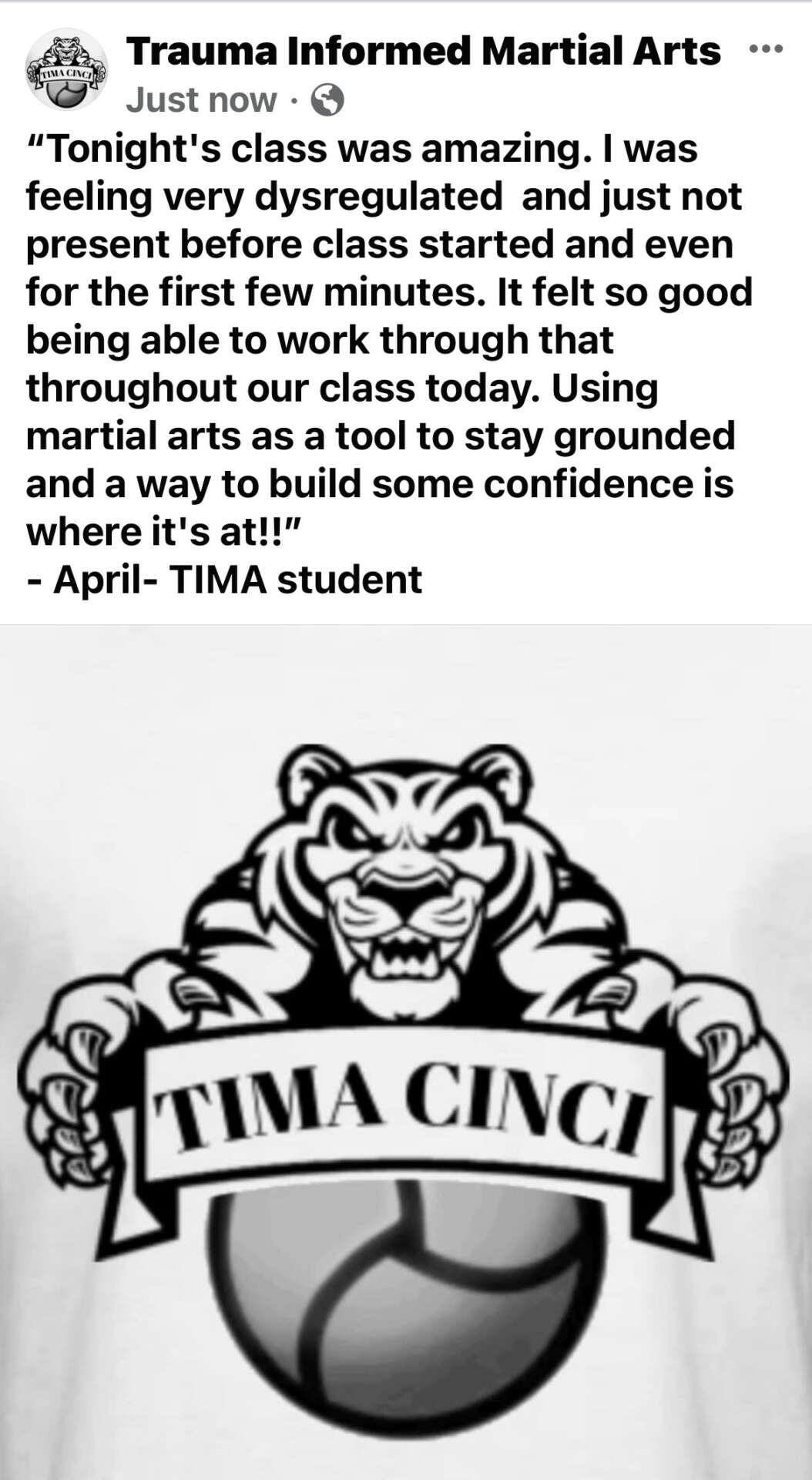
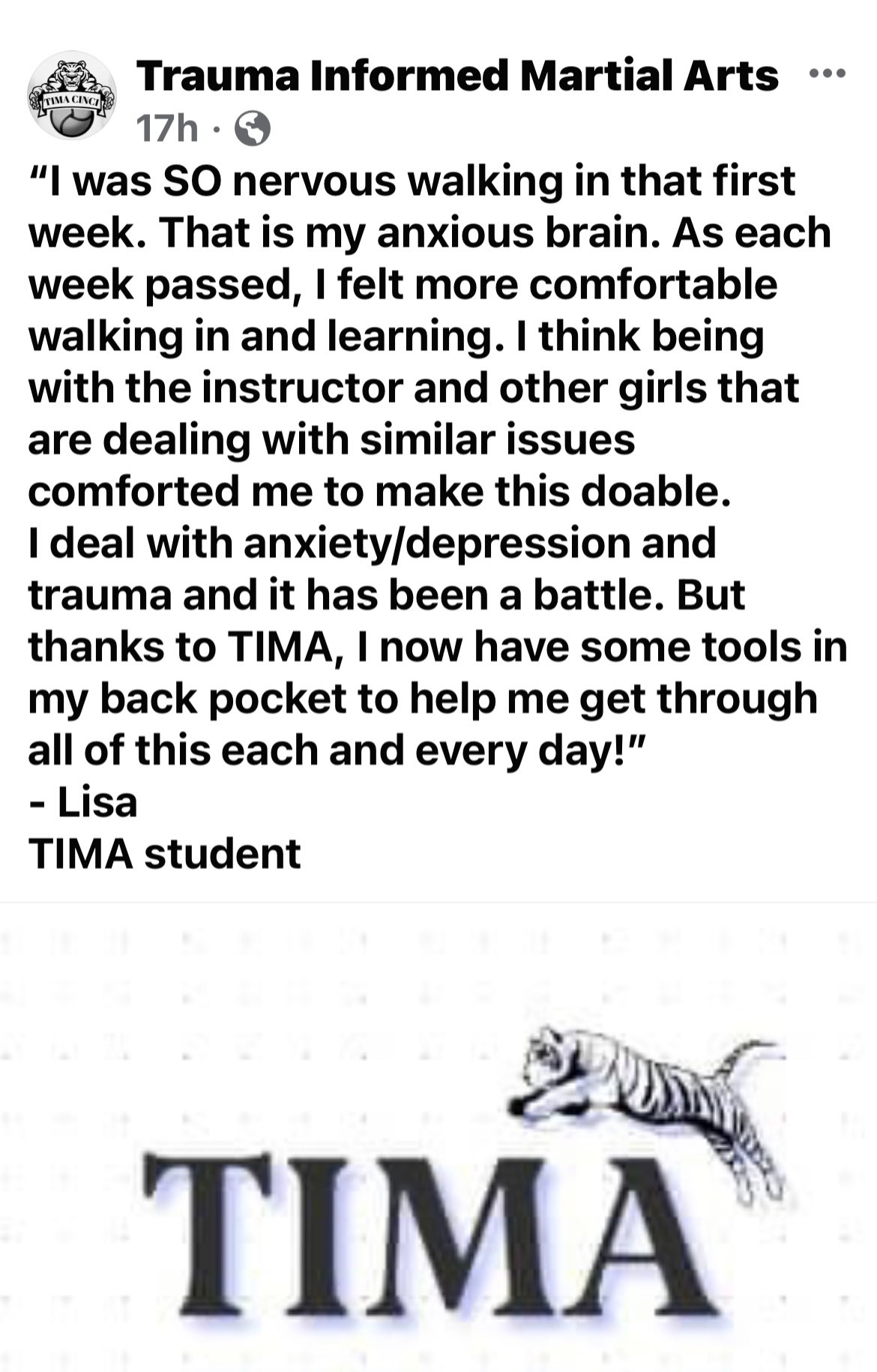
Can you tell us about a time you’ve had to pivot?
Certainly. One of my pivots in life was realizing that I needed to change the entire course of my career. I originally majored in music, earning a degree in vocal performance and with big dreams of performing on Broadway. After working and struggling in this field for a couple of years, I realized that as much as I love music, this work was not my calling. My calling is to help people. I began to look at how I could take what skills I already had and turn them into some type of helping profession and I found music therapy. I had to wait a while until I could begin school, and while waiting I worked at a state psychiatric hospital. It was while going through their great new employee training program I realized I wanted to be a psychotherapist and not a music therapist. At this point I had found my direction and went back to school to study psychology. Without this pivot, or path appearing, I never would have developed the Trauma Informed Martial Arts program.
Contact Info:
- Instagram: TimaCincinnati
- Facebook: Trauma Informed Martial Arts
Image Credits
Julia Woods Channel 12 WKRC


